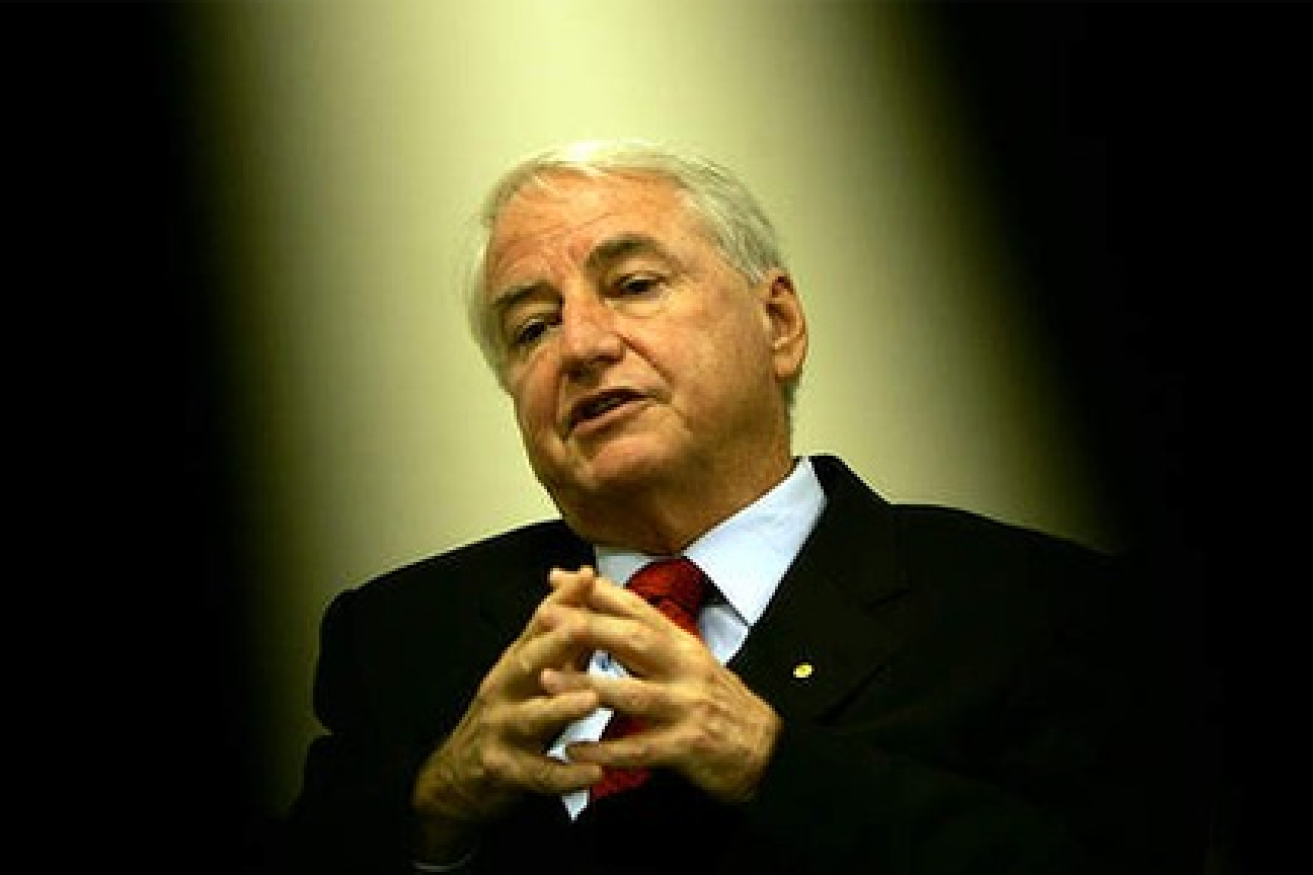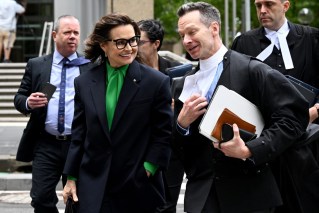We need more lawyers, said nobody. Ever. Except for Tony Fitzgerald, it seems
Corruption-buster Tony Fitzgerald has baked one giant, troubling contradiction into his re-imagining of a revamped Crime and Corruption Commission, writes Madonna King.


Corruption commissioner Tony Fitzgerald Image: Image: Crikey
Tony Fitzgerald would like the modern-day CCC to avoid its recent legal calamities by drawing on a broader set of skills – but he’s missed the mark in one of his recommendations which gives lawyers a monopoly over control of the crime and corruption fighter.
It’s one important area in which Fitzgerald ends up in conflict with the broader ranging Coaldrake inquiry. And the way he’s arrived there is intriguing.
The CCC is governed by up to five commissioners and accounts to parliament through a parliamentary committee. Its annual report explains that the commissioners are led by a Chair and a Deputy Chair which need to have served or be qualified to serve as a Supreme or High Court judge.
That’s understandable. The other commissioners need to have the “qualifications, experience or standing appropriate to help our agency perform its functions”. Stay with me here – but note that this does not specify legal qualification.
In the past, some have been lawyers and some not. At the moment, the commission is made up of two lawyers (chair Bruce Barbour and deputy chair Sydney Williams QC) and one non-lawyer (management consultant Helen Darch). The former chair, Alan MacSporran QC has not yet been replaced and another vacancy created by the expiry of the term of Deborah Holliday QC has been advertised.
Professor Peter Coaldrake’s report notes this and recommends that the government ensure the current round of appointments not come from the legal world. That makes sense because it recognises – as Tony Fitzgerald does – that other skills count even in a heavily judicial body like the CCC.
Indeed, much of the trouble the CCC has found itself in is because it has failed to mirror the views and sentiment of the public it is there to serve.
Coaldrake advocates that future appointments reflect the review of the Parliamentary Crime and Corruption Committee that the commission includes “at least two persons (with) a demonstrated interest and ability in community affairs, public administrations or organizational leadership”. Note again: this does not specify a legal qualification.
Fitzgerald’s inquiry into the CCC has run concurrently to Coaldrake’s review into broader accountability issues and the performance of the state’s integrity bodies.
In its submission to the Fitzgerald probe, the CCC goes close to parroting the wording of its annual report in describing the skills needed to be a commissioner – but adds the rider “given the nature of the CCC’s work, its complex legal framework and the powers it has, the need for multiple CCC Commissioners to be experienced legal practitioners must be recognised”.
This is central to my point here. Note the shift: suddenly legal qualifications matter.
Fitzgerald then goes a step further, saying: “The nature of the CCC’s work, its complex legal framework and the powers it exercises gives rise to the need for CCC commissioners to be experienced legal practitioners”. Note the further shift. Legal qualifications are now needed.
But are they? In a few steps (with the help of the CCC submission) the need for the full commission to be legally qualified has gone from not worthy of mention to being necessary!
It sounds like Chinese whispers but this is crucial to shaping a CCC which better reflects community sentiment – and does its job without the drama of the past two years
Fitzgerald has pointed the finger at a zealous police culture for the botched charging of the elected local councillors on offences that were never going to stand up in court. But that suggests police acted without reference to the band of lawyers who run the CCC!
So why would the solution be to entrench more lawyers at the apex of the organization? Presumably with the help of the lawyers.
No doubt exists that the CCC chair should have strong legal qualifications. But what about governance, IT, people management or understanding of community attitudes are valuable to any board – which is what this group of commissioners is.
So the government is left with a choice: will it stick “lock, stock and barrel” with Coaldrake who calls for diversity. Or go with Fitzgerald and his faith in lawyers?
Such are the perils of multiple inquiries looking at bits of the same problem. And, based on what we see, the ability to reconcile the conflicting views is close to zero.
The coming CCC appointments should give us a clue.













